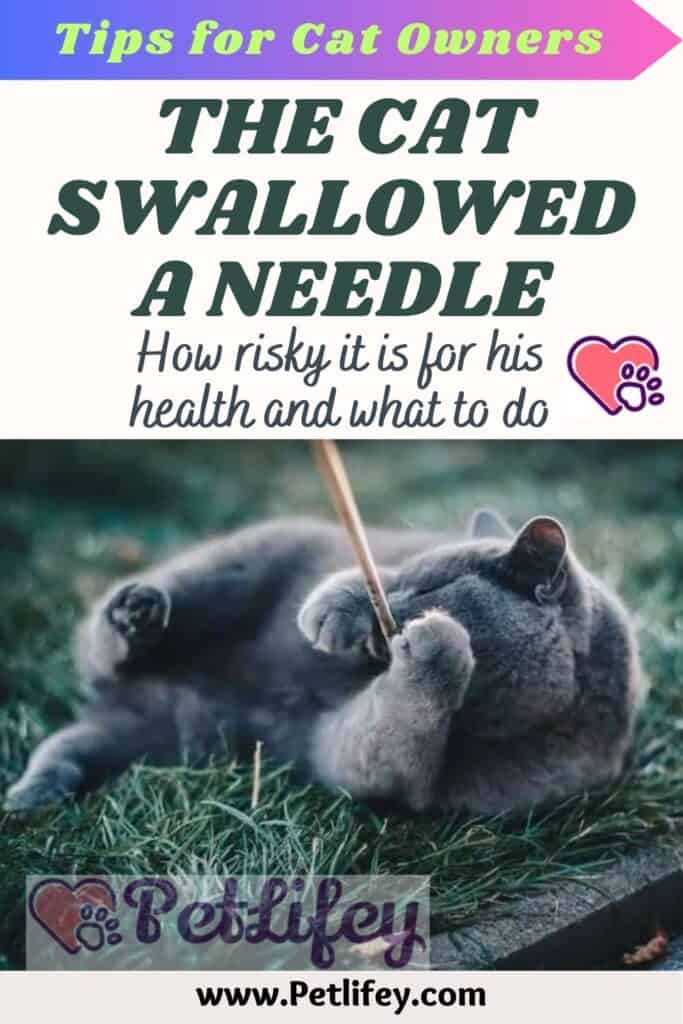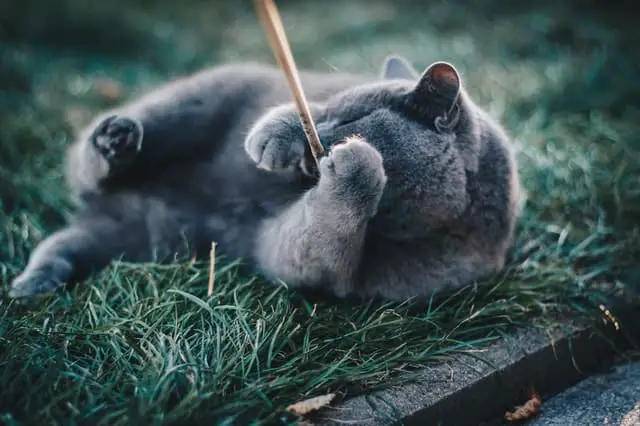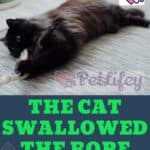
Does your cat put anything in its mouth? This time, however, it is really a risk: the cat has swallowed a needle. What needs to be done before it is too late.
Here we go again! It is true that with our four-legged friends we must always have our eyes open, especially when our cat puts anything in its mouth. And even a relaxing moment, such as sewing, can turn into a nightmare if we notice that the cat has swallowed a needle. Let’s see what to do in this case and quickly, since it could be really very risky for his health.
Eat everything: what the cat puts in his mouth
Among the foreign bodies that the cat is able to swallow are: fish bones, but also balls of wool, spools of thread with the whole needle sometimes, and of course it may have eaten a mouse. We never leave within its paw reach of the food thread to tie the meat, but also elastic bands and thin cords: all elements that attract his attention, perhaps because they are very reminiscent of the tail of a mouse. But also earplugs and sewing, with which on they use to cover the fingers.
Instinctively we could pull it away, but the consequences could be disastrous, even worse than those that follow their ingestion. In fact, in this case the risk of suffocation is high but when it comes to a needle, everything is much more complex and dangerous.
The cat swallowed a needle: why the needles and how to figure it out
But what will these thin metal objects that attract its attention so much have? Probably the cat considers them easy to swallow and put in the mouth, thanks to those small sizes; but often they are found in the mouth because they are attached to both thin and double the wool thread.
But how to understand that the cat swallowed a needle? There are signals that its body sends us, especially if we were not present at that moment. We must be careful to:
- episodes of vomiting and nausea (symptoms of intestinal blockage but also of poisoning in the cat),
- loss of appetite in the cat,
- difficulty swallowing,
- regurgitation,
- depression
- excessive weight loss.
What and how many risks does the cat who has swallowed a needle run?
Unfortunately really many, but it could also ‘go’ well. In fact, there are cases in which the needle has passed into its intestines without doing damage and has come out of it together with the feces in the litter. However, things do not always go so well: in some cases, the most frequent unfortunately, it is absolutely necessary to run to the vet.
The absolute mistake not to be made is to try to do everything yourself and get it out. In fact, the ingested needle can remain attached to the tongue or larynx; it can get stuck in the esophagus and injure it.
If the needle pierces the stomach and intestines, gastrointestinal juices, rich in bacteria, and which can cause aseptic peritonitis, will come out. If it remains in the intestine it can clog it and cause large lacerations of the walls, up to cause a necrosis of the same. In short, the devastating effects can be deadly even in less than an hour.
What to do in this case
The answer is one: run to the doctor for veterinary emergency or to the nearest veterinary clinic. It will be up to the expert to understand if it is actually the ingestion of a needle or our impression. X-ray examinations and an endoscopy will diagnose and also try to solve the problem.
With endoscopy, in fact, we will try to extract the needle, without creating further damage: it is a micro-camera that enters the gastro-intestinal tract and, with special hooks, tries to extract foreign bodies such as needles.
Other remedies can be: surgical operation and, paradoxically, do nothing and wait for it to be expelled from the cat in the feces (but it is very risky and not advisable).
What to do when the danger has escaped

If the operation was successful perfectly, and without other devastating internal consequences, the cat can return home after a few hours. better to guarantee them a little tranquility and rest, not force them to eat. We take care to disinfect and treat dressings and follow, slavishly, all the advice of the veterinarian. And of course take care that the cat does not ingest other foreign objects that are dangerous to its health.






